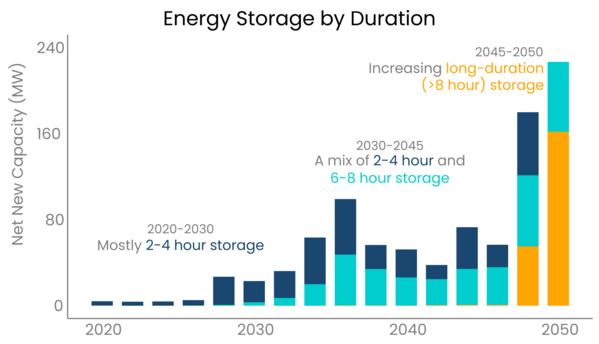In alignment with the Biden-Harris Administration’s Investing in America initiative, the U.S. Department of Energy (DOE) has unveiled $33 million in funding for nine projects across seven states.
These projects aim to enhance concentrating solar-thermal (CST) systems technologies for producing solar fuels and facilitating long-duration energy storage.
CST technologies utilize mirrors to concentrate sunlight onto a receiver, aiding in the production of clean, carbon-free fuels, heat, and storage for a multitude of applications.
Advancing such clean energy technologies is crucial to President Biden’s comprehensive strategy to reduce harmful carbon emissions and achieve the nation’s ambitious clean energy and climate targets.
“Under the Biden-Harris Administration, DOE continues to back the development of next-generation solar technologies necessary to address the climate crisis and ensure that American scientific innovation remains unparalleled globally,” stated U.S. Secretary of Energy Jennifer M. Granholm.
“Today’s announcement supports projects that will harness solar energy for diverse uses, from NASA space missions to beer and wine production.”
The DOE’s Solar Futures Study indicates that significant expansion of energy storage, particularly long-duration storage, is essential to meet the Biden-Harris Administration’s clean energy and climate objectives.
To expedite the development of these technologies, DOE launched the Long Duration Storage Shot™ initiative, aiming to drastically reduce costs within the next decade.
Furthermore, the industrial sectors, responsible for 33% of the nation’s primary energy consumption and 30% of energy-related carbon dioxide emissions, will increasingly need clean sources of heat and fuel.
Breakthroughs in this domain are supported by DOE’s Industrial Heat Shot,™ Hydrogen Shot,™ and Clean Fuels & Products Shot.™

The availability of solar fuels and clean hydrogen will diminish reliance on fossil-fuel-based resources like feedstocks for fuels, chemicals, and other petroleum-derived materials.
The projects announced today will also bolster DOE’s efforts to foster a robust, domestic clean hydrogen industry by advancing cost-effective hydrogen production methods.
Innovative Solar Projects
Three of the selected projects will utilize affordable heat from solar energy to generate renewable fuels more cost-effectively than electricity and without the emissions associated with natural gas combustion. Projects chosen for award negotiation include:
- Exergy Labs (Dover, DE): This project aims to develop a modular dish reactor for clean hydrogen generation with reduced carbon intensity and land use compared to other hydrogen production methods. Prototype dish reactors will be tested on-site in North Carolina and Arizona. (Award Amount: $3 million)
- National Renewable Energy Laboratory (Golden, CO): This project will create a novel CST-compatible reactor that employs carbon monoxide and water vapor to produce high-value products like jet fuel. The team will design a 1-megawatt pilot plant to support and assess the commercial viability of the solution. (Award Amount: $3 million)
- West Virginia University (Morgantown, WV): In collaboration with NASA, this project aims to demonstrate the benefits of direct solar-thermal integration with hydrogen production via a high-temperature solid oxide electrolyzer, with potential applications including hydrogen and oxygen production in space. (Award Amount: $5 million)
Thermal Energy Storage Advancements
Six additional projects will advance thermal energy storage technologies capable of providing heat continuously or on demand. These technologies can be coupled with turbines to produce electricity or used in industrial processes requiring heat.
Low-temperature CST heat can decarbonize the food and beverage industry, such as by supporting brewing processes, while high-temperature heat is useful in chemical production.
Each system can be charged with renewable CST energy. The selected projects for award negotiation include:
- Brayton Energy (Hampton, NH): This project aims to mitigate risks associated with a novel high-temperature particle-based thermal energy storage concept that integrates storage, media transport, and heat exchange into a single vessel. (Award Amount: $5 million)
- Durion (White River Junction, VT): This project will advance a patented thermal energy storage system, recently developed with previous DOE funding, that stores energy as pressurized hot water. The technology aims to provide a low-cost solution for delivering 1 megawatt of thermal heat for up to 12 hours for commercial and industrial applications. (Award Amount: $1.6 million)
- Firestone Walker Incorporated (Paso Robles, CA): This project will use thermal solar energy to generate steam for Firestone Walker Brewery, eliminating 3,000 tons of carbon dioxide emissions annually from their brewing process. (Award Amount: $7.3 million)
- Premier Resource Management (Bakersfield, CA): In partnership with the National Renewable Energy Laboratory, this project will develop a 100-kilowatt electric demonstration power plant with over 12 hours of storage, storing thermal heat underground at retired fracking sites in California. (Award Amount: $6 million)
- Southwest Research Institute (San Antonio, TX): This project will demonstrate the impact of low-cost CST in utility power applications by testing an advanced dual media energy storage system that uses liquid molten salt and solid storage to provide 1 megawatt of thermal heat for 10 hours. (Award Amount: $1.2 million)
- University of Tennessee (Knoxville, TN): In collaboration with Sandia National Laboratories, researchers will develop a high-performance cascaded heat exchanger concept for low-cost power generation and high-temperature industrial process heat production. (Award Amount: $850,000)
Award Negotiation and Funding
Selection for award negotiations does not guarantee funding from DOE. Before issuing funding, DOE and the selected projects will engage in a negotiation process. DOE may cancel negotiations and rescind selections for any reason during this period.